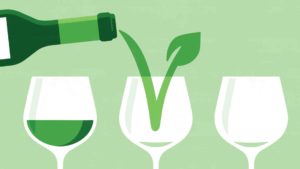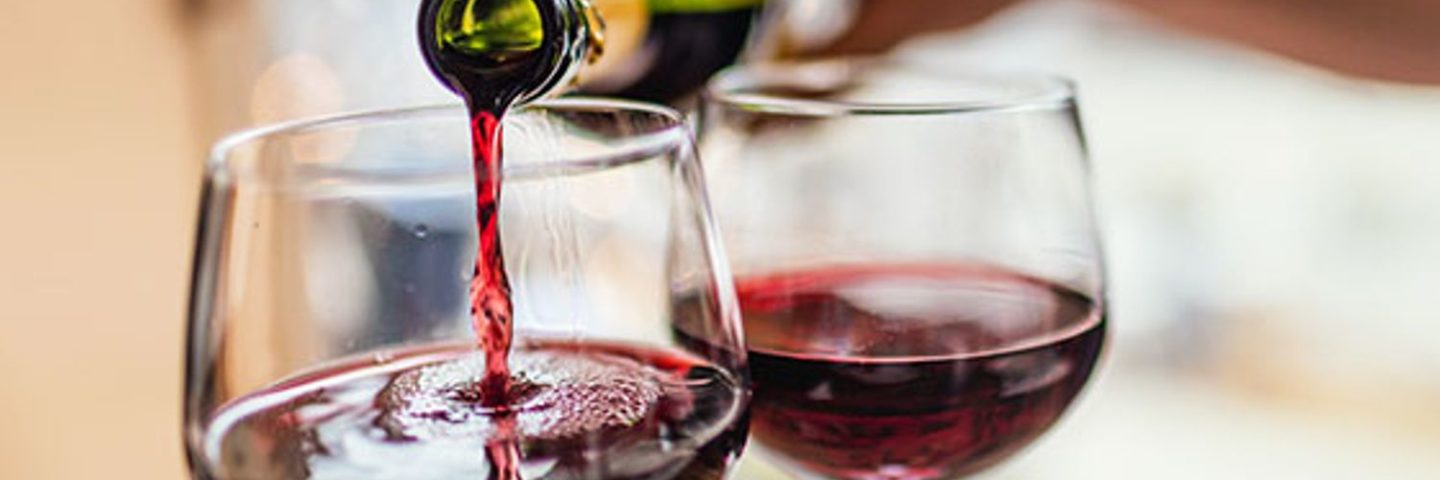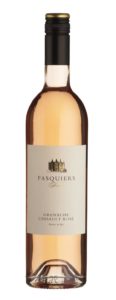By Luisa Welch, AWE
It’s January, it’s cold, and you might already be wavering about you New Year Resolutions.
If one of your resolutions is to drink better wines, why not consider drinking healthier wines too? You may well ask if there is such a thing as ‘healthier’ wines: organic, vegetarian or vegan perhaps. January is the month that celebrates all things vegan, hence it’s become known as Veganuary. The increasing move to veganism may be due to people’s concern for animal welfare, health, or climate impact. Whatever the reason behind it, consumers want to have the same transparency in terms of what’s in their glass, as for what’s on their plate. Luckily, there is a great selection of vegan wines to choose from, and not just for January.
What makes a wine vegan?
Wine is the product of grapes so it should be suitable for vegans, but this isn’t always the case. In the wine making process, some sediment is naturally formed, and even after filtration, not all can be removed.
Traditional fining agents are therefore used, and these can include egg white, casein from milk, and gelatine from fish and animal sources.
Vegan wines however are made without animal products, so some winemakers choose to leave the sediment to sink naturally to the bottom of the bottle, or use non-animal fining products to remove them. These can be bentonite (a form of natural clay), pea protein and even algae.
In reality, many wines are vegan or vegan friendly. However, it can be difficult to tell, therefore it’s good to follow the advice of a trusted retailer or producer when you are choosing a vegan wine.

Wine Trust has an enviable selection of vegan wines and if you are looking for something different – and vegan – below you will find a ‘January collection’ designed to pique your curiosity.
Lawson’s Dry Hills Riesling 2018
From New Zealand’s Waihopai Valley, near Blenheim in Marlborough, this single vineyard wine brings plenty of sunshine to our cold January, in a glass at least. The winery, established by Ross and Barbara Lawson 20 years ago, has remained family owned and follows fundamental environmental practices which respect both the vineyards and the environment. Delightfully fresh, this Riesling shows orange blossom, white peach notes and a touch of honey on the nose, which make it attractive and aromatic. The palate is crisp and dry with a wonderful balance of fruit and acidity. With a string of international awards for the quality of its wines, this is a winery to watch.
Domaine de Vedilhan Serica Viognier 2021
Serica means silk, and this wine is aptly named after the original Latin word for its smooth character. One of the great white grapes of the Rhône Valley, the Viognier was almost eradicated as there was no interest in planting it apart from the Rhône. Now it is widely planted in the South of France and indeed around the world. At its best, Viognier is arguably the most indulgent of all white varietals – with sumptuous perfume and exotic fruit flavours. This Domaine de Vedilhan comes from a single vineyard in the Languedoc, one of the finest on the estate. The wine is fermented in a mix of new and old French oak barrels, which imparts toasty, vanilla notes without overpowering the gentle tropical fruit and orange peel of the Viognier grape. The combination is simply delicious. Rich, complex and well balanced, a wine which betrays its very attractive price.
Pasquiers Grenache Cinsault Rosé 2021
From one of the most traditional areas in the South of France for the production of rosé wines, this beautiful blend of two classic grape varieties, Grenache Noir and Cinsault, is arguably the gem of the Languedoc-Roussillon. Consistently scoring top marks for its quality at an incredible value for money, this is the wine that will make you think of summer even in January. Winemaker Eric Monnin has cleverly captured the fruity and spicy character of the two grapes, whilst maintaining the delicate roundness of the wine. He works closely with local vignerons and constantly sources the area’s best parcels. Think of crushed English strawberries in a bottle, with a bit of pepper on the finish. Ideal as an aperitif or with a fennel salad – try cooked fennel dressed in olive oil and lemon and served warm.
False Bay ‘Old School’ Syrah 2020
South Africa is seldom unsurpassed when it comes to rich, quality red wines of outstanding value. This savoury and appealing Syrah/Shiraz is the proof.
Named after Cape Town’s False Bay – geographically on the other side of the city to Table Bay – it’s this large sweeping bay that’s in full view from the famous Waterkloof estate where the wine is made.
Grapes for this wine are sourced mainly from two sustainably cultivated, separate vineyards in a cool area in Stellenboch. Then some Syrah grapes are added from a warmer coastal vineyard for perfect balance.
Often seen in South Africa, a mixture of crushed grapes and whole bunches are put in the tank together before wild yeast is added. This helps develop both a bright, deep colour and highlight the fruity note of the Syrah grape. French oak is used to define the appeal of the wine, which is full and elegant, with notes of bramble fruit and some earthy aromas. The palate is structured, with fine tannins and a refreshing natural acidity.
Amalaya Calchaqui Valley Malbec 2020
With the current climate change, Argentina is suddenly in the spotlight for the freshness of its wines, as it’s here, in the Calchaqui Valley in the north of the country, that you will find some of the highest vineyards in the world. Why is this important? Because the climate is dry, there are huge fluctuations between day and night temperatures, and the soil is rocky, poor and sandy, so the roots of the vines are forced to dig deep for nutrients and water, which results in grapes with a huge concentration of flavour. The vines benefit from a lot of sun during the day and from a very cool temperature at night, so they cool down, ready to absorb more sun the following day.
Growing vines at an altitude between 1500 and 3100 metres might seem impossible. Perhaps not for nothing the winery is called Amalaya, which translates as ‘hope for a miracle’ in the indigenous language of the now extinct tribe, the Calchaqui. Part of the Hess Family Estates, the winery is dedicated to quality, sustainability and social responsibility.
The wine is a blend of Malbec as the dominant grape, with some Tannat and Petit Verdot. It is fruit driven in style, with a finesse and structured which may well leave you wanting for more. Deep ruby red with purple hues, the wine is intensely fruity, with a touch of spice and chocolate. Soft and rounded on the palate with a long velvety finish, yet it’s the freshness that lifts the wine that will surprise you.






